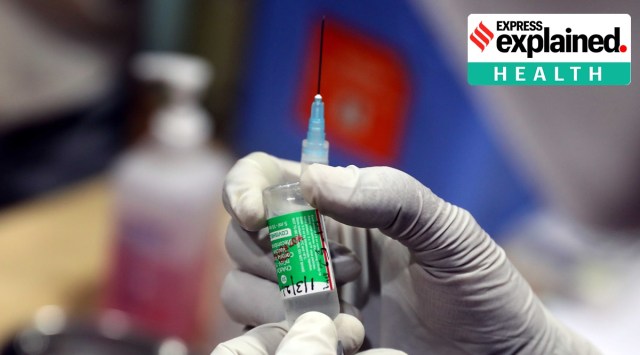More than 1.63 crore people have received a coronavirus vaccine in India so far. While there has been no case of any adverse effect on anyone, some recipients have reported some side-effects or mild illness.
A large number of experts have underlined that these are expected in a small number of cases — and that these ought not to dissuade people from taking the shot.


Dr Shashank Joshi, member of Maharashtra’s Covid-19 task force, said both the vaccines being used in India,
Bharat Biotech’s Covaxin and Serum Institute of India’s Covishield, a version of the Oxford-AstraZeneca vaccine, are absolutely safe — and minor side-effects are expected in some cases, not just for these particular vaccines, but any other vaccine as well.
Story continues below this ad
Here are some of the things you need to know, and some precautions that you should take before getting vaccinated.
Before vaccination
👉 In case a person has allergies to medication, or drugs, it is important to get an all-clear from a medical practitioner. A complete blood count (CBC), C-reactive protein (CRP), or Immunoglobulin-E (IgE) levels can be checked under medical advice.
👉 One should eat well and take medicines, if prescribed, ahead of vaccination. One should try to be as relaxed as possible; counselling can help people who are feeling anxious.
👉 People with diabetes or blood pressure need to keep these in check. Cancer patients, especially those on chemotherapy, must act on medical advice.
Story continues below this ad
👉 People who have received blood plasma or monoclonal antibodies as part of Covid-19 treatment, or those who have been infected in the last one and a half months are advised to not take the vaccine right now.
After vaccination
👉 A recipient of the vaccine is monitored at the vaccine centre itself to guard against any immediate severe allergic reaction. People are allowed to leave only after it has been ascertained that this is not the case.
👉 Side effects like pain at the injection site and fever are common. This is no reason to panic. Some other side effects like chills and fatigue might also be expected, but these go away in a few days.
Important to note
🔴 Vaccines teach our immune system how to recognise and fight an external threat — in this case, the virus that causes Covid-19. It typically takes a few weeks after vaccination for the body to build protection (immunity) against the virus.
Story continues below this ad
🔴 This means that a person could still get infected by Covid-19 in the few days immediately following the vaccination, because the person would not have had enough time to develop immunity.
🔴 Therefore, basic precautionary measures must be followed even after vaccination. Face masks, hand hygiene, and physical distancing in public places must not be abandoned just because a vaccine has been taken. Cough/sneeze etiquette also needs to be followed.









































